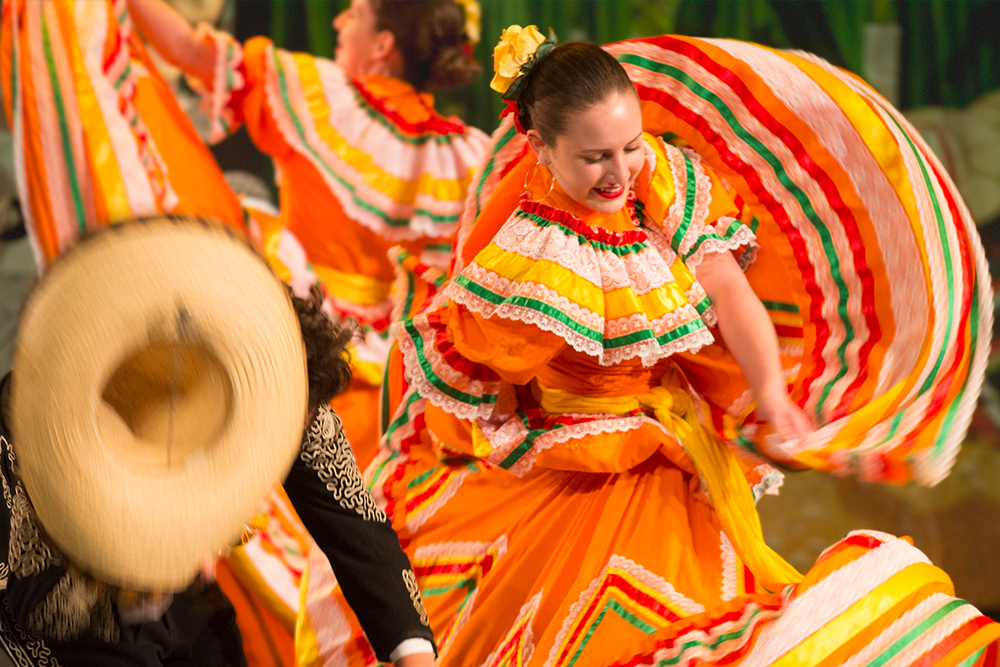
Hoping for better times
Monday, 2nd November 2020
Annually since 1968, by the proclamation of the United States government and in recognition of the massive and rich presence of Hispanic/Latino men and women coming to—and living in—the United States, we celebrate HISPANIC HERITAGE MONTH during this time of year.
This is a celebration that commemorates, coincides, and integrates with the dates when Costa Rica, El Salvador, Guatemala, Honduras, Nicaragua, Mexico, and Chile won their independence.
This year, we commemorate HISPANIC HERITAGE MONTH globally and nationally with the powerful numbers of Hispanics represented in the most recent US Census. This HISPANIC HERITAGE MONTH is marked by the approaching presidential elections and by the challenging experience of the pandemic, the quarantines, and their dire consequences for personal and social life.
According to data from the Census Office, as of July 1, 2019, the Hispanic community residing in this country numbers 60.6 million people, a figure that makes us the largest ethnic and minority group in the United States, comprising 18.5% of the total population of the country. The average age of the Hispanic population is 27.3 years old, and, during this Covid-19 Coronavirus pandemic, Hispanics also have the highest percentage of people without health insurance, approximately 16.1%.
In the current political and social context, one of the most pressing issues for the Hispanic community in the United States concerns these figures, since these—as a result of the national Census—are what determine, for example, the number of congressmen, the political representatives from the communities of each state, in addition to determining the federal monies that the US government sends to each city, community, and state. These issues of political representation and aid for the needs of housing, health, education, etc., so important to everyone, and especially to the Hispanic community, have been stunted in their development and have been delayed in their application and execution due to the pandemic and the resulting in a very serious economic recession.
This post-pandemic economic situation, characterized by unemployment and a drop in economic indices around the world and especially in this nation, seriously and directly attacks everything and everyone, but especially the Hispanic community and our interests as immigrants in this country. The immigrant population is made up, in general, and mainly of men, women, and entire families who seek a better future through the better living conditions offered by a healthier economy.
These economic difficulties always have repercussions in the lack of health, housing, and education, and these deficiencies are reflected in the lack of opportunities at all levels and, especially, in the absence of Hispanics in positions of representation, responsibility, and political force in this nation. All this becomes a vicious circle, like a Ferris wheel. As socio-economic difficulties grow, there are fewer possibilities for political representation. And with less political representation, the Hispanic community derives fewer opportunities and government benefits.
The presidential elections, on the other hand, constitute an enormous challenge to the successes and achievements that this nation's Hispanic community may yearn for. It is a Hispanic community that, as in other areas of life, is not a homogenous community in terms of opinions, ideas, colors, and political choices. The socio-political heterogeneity of the members who make up what we call the "Hispanic community" is broad and exhibits the same differences that we see in our countries of origin. It is one thing to be an immigrant in serious economic need or forcibly displaced, and it is quite another, to be an immigrant who invests in real estate or in the business world. Another profile is that of the tourist or student, and yet another, very different profile is the political refugee.
All this shows, among other things, the urgent needs within the Hispanic community residing in the United States: education, integration, leadership, and defense of the best Hispanic values, history, traditions, and heritage.
Education, through the study and knowledge of the new social reality—its language, habits, and customs—in which we live. Integration within our Hispanic communities and integration also with the society that welcomes us, through respectful observance and compliance with US norms, values, and traditions. An honest and well-trained leadership in all fields of social life (academic, artistic, cultural, sports, economic, political, religious, etc.), for the pursuit of the common good and the recognition, experience, contribution, and integration of our best Hispanic customs and traditions, such as the value of the family, the value of welcome and solidarity, the value of parties celebrating life and the sense of religion and transcendence.
Let's celebrate HERITAGE MONTH with a look to the past to thank the Hispanic achievement in this nation and its protagonists who preceded us; with a look to the present to reflect, evaluate and commit ourselves to everything that here and now we need to do, improve and change; and with a look to the future to encourage us in the hope that better times will come for all and a better Hispanic heritage for the next generations....
Back to Newsroom
